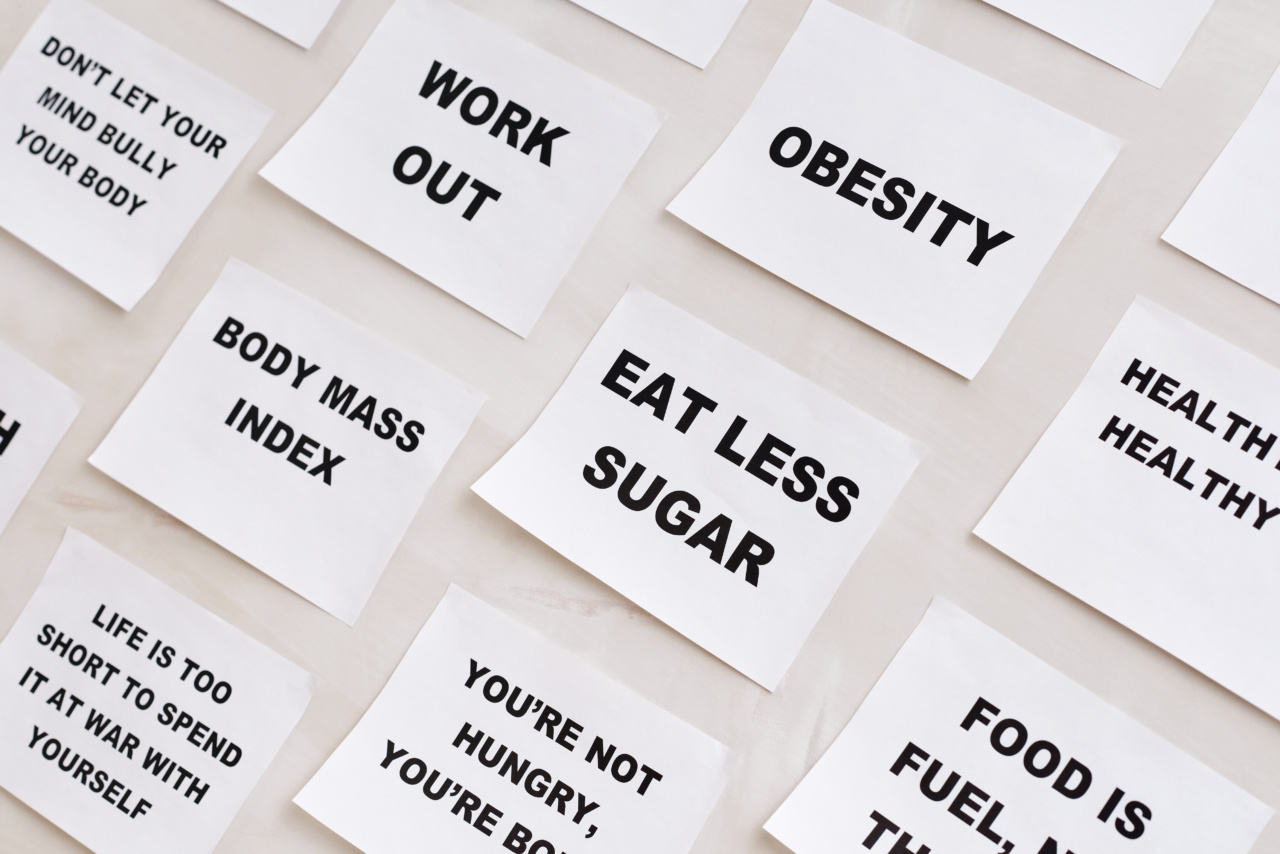Bloating is a common digestive issue that can leave you feeling uncomfortable and self-conscious. It occurs when your abdomen feels swollen or full due to excess gas production or disturbances in your digestive system.
While occasional bloating is normal, chronic bloating can be a sign of an underlying health condition or poor eating habits. If you often experience bloating, it’s important to address it by adopting healthy eating habits that can help alleviate the problem.
In this article, we will explore some effective eating habits to combat bloating and improve your digestive health.
1. Eat Smaller, More Frequent Meals
Instead of consuming three large meals, consider switching to smaller, more frequent meals throughout the day. This approach can promote better digestion, as smaller meals are easier for your digestive system to handle.
Eating large meals can put excessive strain on your stomach and lead to bloating and discomfort. By spreading your meals out, you’ll give your digestive system time to process each meal more efficiently, minimizing the chances of bloating.
2. Chew Your Food Thoroughly
Many people underestimate the importance of chewing their food properly. Chewing is the first step in the digestion process and helps break down food into smaller, more manageable pieces.
When you chew your food thoroughly, you make it easier for your stomach to digest and absorb nutrients. Furthermore, chewing stimulates the production of digestive enzymes, which can aid in the breakdown of food and prevent gas and bloating.
3. Slow Down and Mindful Eating
In today’s fast-paced world, we often rush through our meals without paying attention to what we’re eating. Eating too quickly can cause you to swallow excess air, leading to bloating.
Additionally, when you eat in a hurried state, your body may not be properly prepared for digestion, which can contribute to bloating. To combat bloating, slow down and practice mindful eating. Focus on each bite, savor the flavors, and chew your food thoroughly. This not only aids digestion but also helps you enjoy your meals more fully.
4. Limit Carbonated Drinks
Carbonated drinks, such as soda or sparkling water, can introduce a significant amount of gas into your digestive system. The bubbles in these drinks can accumulate in your stomach and lead to bloating and discomfort.
To combat bloating, it’s best to limit or avoid carbonated drinks altogether. Opt for still water, herbal tea, or other non-carbonated beverages to stay hydrated and minimize the risk of bloating.
5. Avoid Eating Too Quickly
Eating too quickly not only leads to swallowing air, but it also allows you to consume large amounts of food rapidly. This can overload your digestive system and lead to bloating.
To combat bloating, make a conscious effort to slow down and take your time with your meals. Eating mindfully and savoring each bite can help you recognize your body’s natural signals of fullness and prevent overeating, reducing the likelihood of bloating.
6. Watch Your Fiber Intake
Fiber is an essential nutrient for maintaining a healthy digestive system, but consuming too much fiber, especially insoluble fiber, can contribute to bloating.
Insoluble fiber, found in foods like wheat bran, whole grains, and some vegetables, can be difficult to digest and may cause gas and bloating in sensitive individuals. If you experience frequent bloating, it may be helpful to reduce your intake of high-fiber foods and gradually increase it as your body adapts.
7. Limit Gas-Producing Foods
Some foods are known to produce more gas than others, leading to bloating and discomfort. To combat bloating, you may want to limit or avoid gas-producing foods such as beans, lentils, broccoli, cabbage, onions, and carbonated drinks.
While these foods are nutritious, they can cause digestive disturbances in some individuals. Experiment with your diet to identify which foods might be triggering your bloating symptoms and make necessary adjustments.
8. Avoid Overeating
Overeating is a common cause of bloating. When you consume large quantities of food in one sitting, your stomach becomes stretched, and digestion can become more challenging.
Instead of eating until you feel stuffed, aim to stop eating when you’re comfortably full. This will give your body ample time to digest the food you’ve consumed and avoid the discomfort associated with bloating.
9. Stay Hydrated and Limit Sodium
Dehydration and excessive sodium intake can contribute to water retention and bloating. To combat bloating, it’s essential to stay properly hydrated by drinking enough water throughout the day.
Additionally, reducing your sodium intake can help prevent fluid retention and decrease bloating. Opt for fresh foods and season your meals with herbs and spices instead of relying on processed or packaged foods, which tend to be high in sodium.
10. Consider Food Sensitivities
In some cases, bloating may be a result of food sensitivities or intolerances. Common culprits include lactose, gluten, and certain FODMAPs (fermentable oligosaccharides, disaccharides, monosaccharides, and polyols).
If you suspect that certain foods are causing your bloating, consider undergoing an elimination diet or working with a healthcare professional to identify and manage your food sensitivities. By eliminating problematic foods, you can significantly alleviate bloating and improve your digestive health.






























